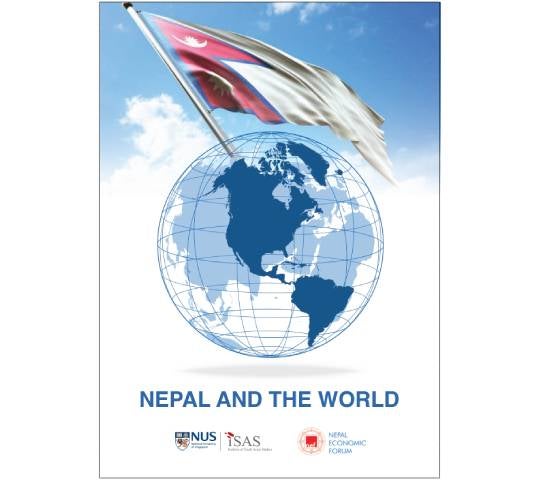
| Title: | Nepal and the World |
| Author/s: | Wini Fred Gurung, Sujeev Shakya, Amit Ranjan |
| Abstract: | The small South Asian states face unique challenges. From local political issues, economic recoveries and natural disasters to border tensions and international geopolitics, these small states are more vulnerable compared to their bigger neighbours. However, as the world shifts its gaze from the West to the East and South Asia grows in importance, Nepal has emerged as an important player in the world. Though small in size, Nepal has enormous potential to be an essential player in South Asia and beyond. To create a more defined footprint in the global arena, it must focus on broadening and deepening its engagements with countries beyond its immediate neighbourhood. The Institute of South Asian Studies at the National University of Singapore and the Nepal Economic Forum, organised a roundtable that brought together eminent speakers and discussants to analyse Nepal’s capabilities by transcending its limitations as a minor actor in global politics. This Special Report contains the conversations and issues raised during the roundtable. |
| Date: | 8 June 2022 |
| Read More |
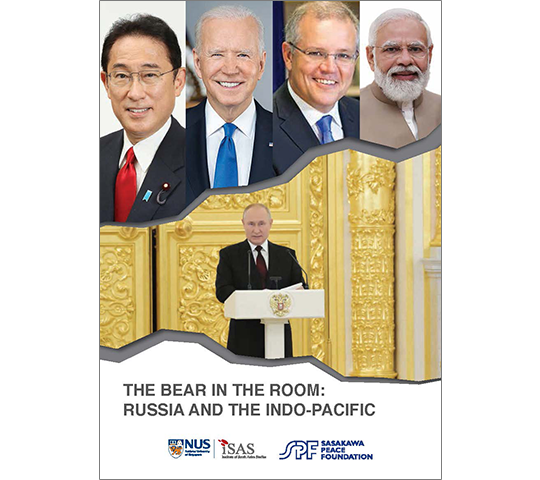
| Title: | The Bear in the Room: Russia and the Indo-Pacific |
| Author/s: | Yogesh Joshi, Ippeita Nishida, Nishant Rajeev |
| Abstract: | In the last 15 years of the Quad’s existence, the most momentous shift for the Indo-Pacific’s balance of power has been the emerging entente between Russia and China. Russia has found itself on the opposite side of the Quad, leading to a counter-coalition by Eurasia’s continental powers. To understand Russia’s emerging role in the Indo-Pacific and its impact on the policies of the Quad and the European countries in the region, the Institute of South Asian Studies at the National University of Singapore and Sasakawa Peace Foundation, Japan, organised a panel discussion to examine Moscow’s approach towards the region. The presentations and discussions during the panel discussion are contained in this Special Report. |
| Date: | 30 May 2022 |
| Read More |
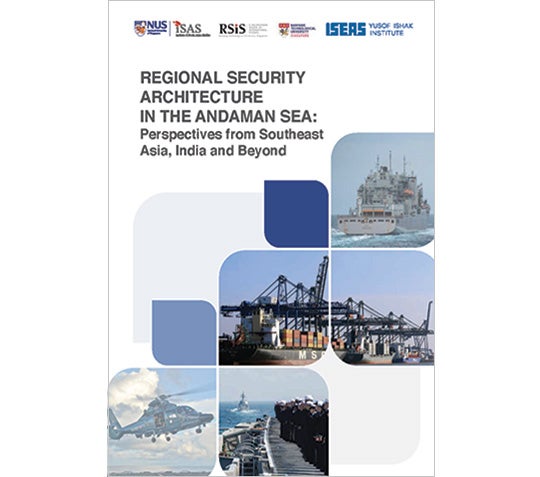
| Title: | Regional Security Architecture in the Andaman Sea: Perspectives from Southeast Asia, India, and Beyond |
| Author/s: | Yogesh Joshi, Nishant Rajeev, Hoang Thi Ha, Sinderpal Singh, Ian J Storey |
| Abstract: | The Andaman Sea is increasingly becoming a new battleground for maritime influence in the Indian Ocean. Its geographical centrality in the Bay of Bengal and the Eastern Indian Ocean confers the Andaman Sea geopolitical heft. The geographical centrality of the Andaman Sea in the Bay of Bengal – sprawling as an arc between the Indian subcontinent and the Indochinese peninsula – is eliciting significant interest from both regional and extra-regional powers for three primary reasons: security, trade and shipping. Due to this strategic location, China, the United States, Japan, Australia and the Andaman Sea’s coastal states have begun paying close attention to this critical maritime space. The Institute of South Asian Studies at the National University of Singapore, ISEAS-Yusof Ishak Institute and the S. Rajaratnam School of International Studies at the Nanyang Technological University organised a workshop on the various critical elements relating to the Andaman Sea, which are contained in this Special Report. |
| Date: | 18 May 2022 |
| DOI: | 10.48561/xgb6-v0sx |
| Read More |
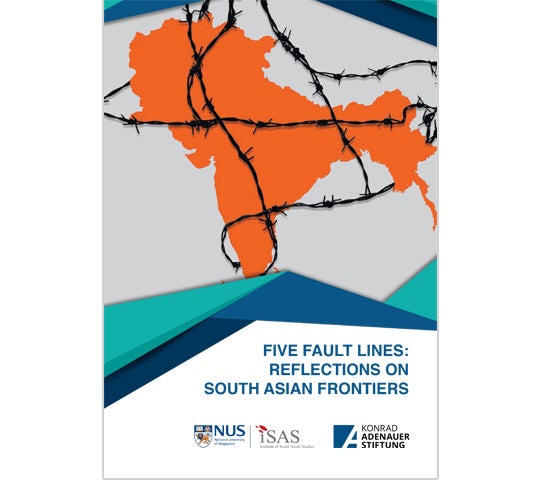
| Title: | Five Fault Lines: Reflections On South Asian Frontiers |
| Author/s: | Jasnea Sarma, Claudia Chia |
| Abstract: | The past partitions, frontier-making and border demarcations in South Asia have produced uneven geographies, identities and territories that continue to underpin some of the region’s most critical conflicts and social struggles today. The region’s fragmented and fractured ‘fault lines’ continue to alter due to new infrastructure connectivity projects, ecological changes and ongoing militarisation. As a result, there has been a welcome shift in academia and policy circles toward broadening the intellectual lineage of border studies in South Asia and employing cross-disciplinary, critical and transnational approaches to studying South Asian borders and frontiers. The Institute of South Asian Studies partnered with Konrad Adenauer Stiftung to jointly organise the International Conference on South Asia from 10 to 19 May 2021. The conference, titled ‘Five Fault Lines: Reflections on South Asian Frontiers’, brought together a diverse mix of scholars and practitioners to discuss and analyse the colonial origins, postcolonial legacies and contemporary congealing of frontiers and borderlands in the region. This Special Report encapsulates the key ideas, research and debates raised in the conference. |
| Date: | 21 April 2022 |
| DOI: | 10.48561/rxfz-jn7h |
| Read More |
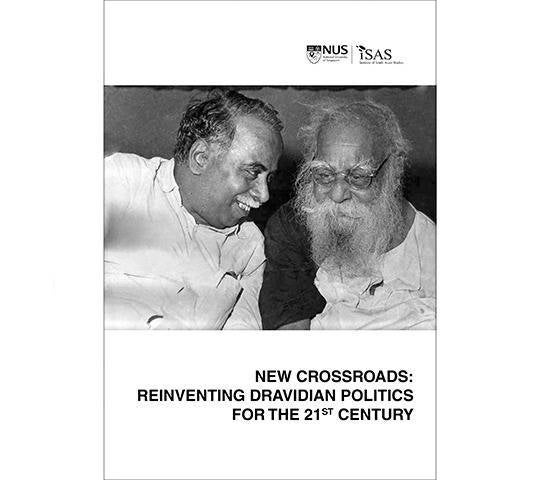
| Title: | New Crossroads: Reinventing Dravidian Politics for the 21 st Century |
| Author/s: | Narayan Lakshman |
| Abstract: | Close to a century after the Dravidian movement kicked off in Tamil Nadu as an ideology built around the notion of progressive social transformation, its contours have shifted dramatically in response to profound changes in the political landscape and the imperatives faced by political parties and their constituents. The two major Dravidian parties that hold sway over state politics today face considerable challenges internally and externally and have had to redefine some of their core tenets to remain politically relevant amidst the flux. This Special Report examines the nature of these tectonic shifts in Dravidian politics and outlines their ramifications for the future of politics and policy in Tamil Nadu and India. |
| Date: | 1 February 2022 |
| DOI: | 10.48561/wffc-sned |
| Read More |
Load more


